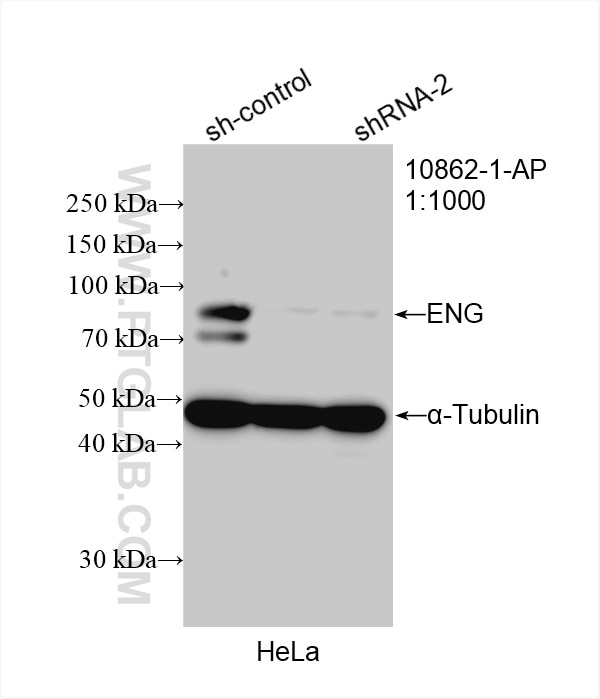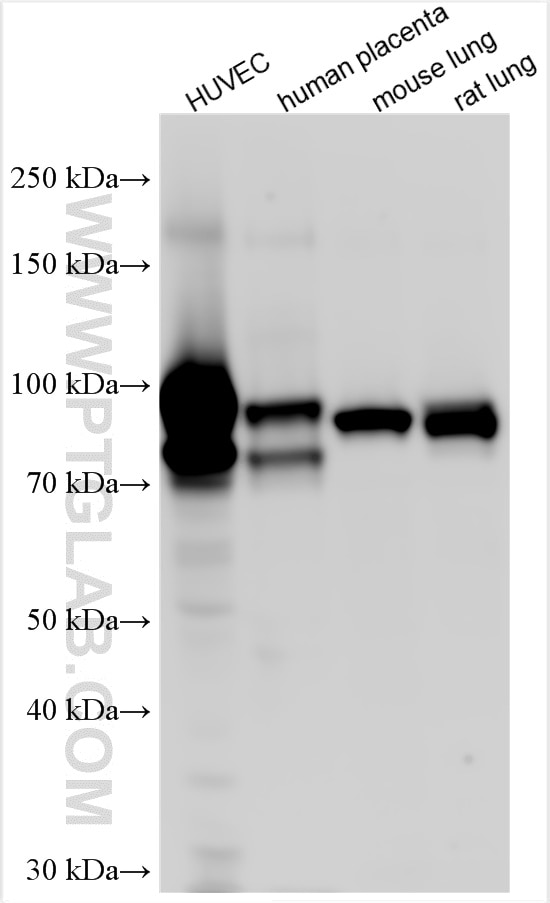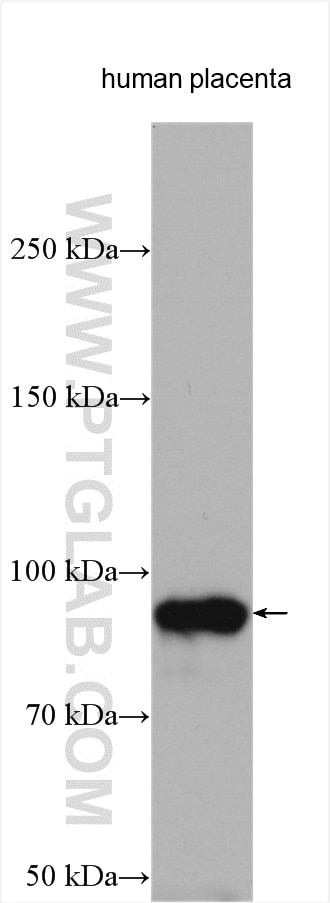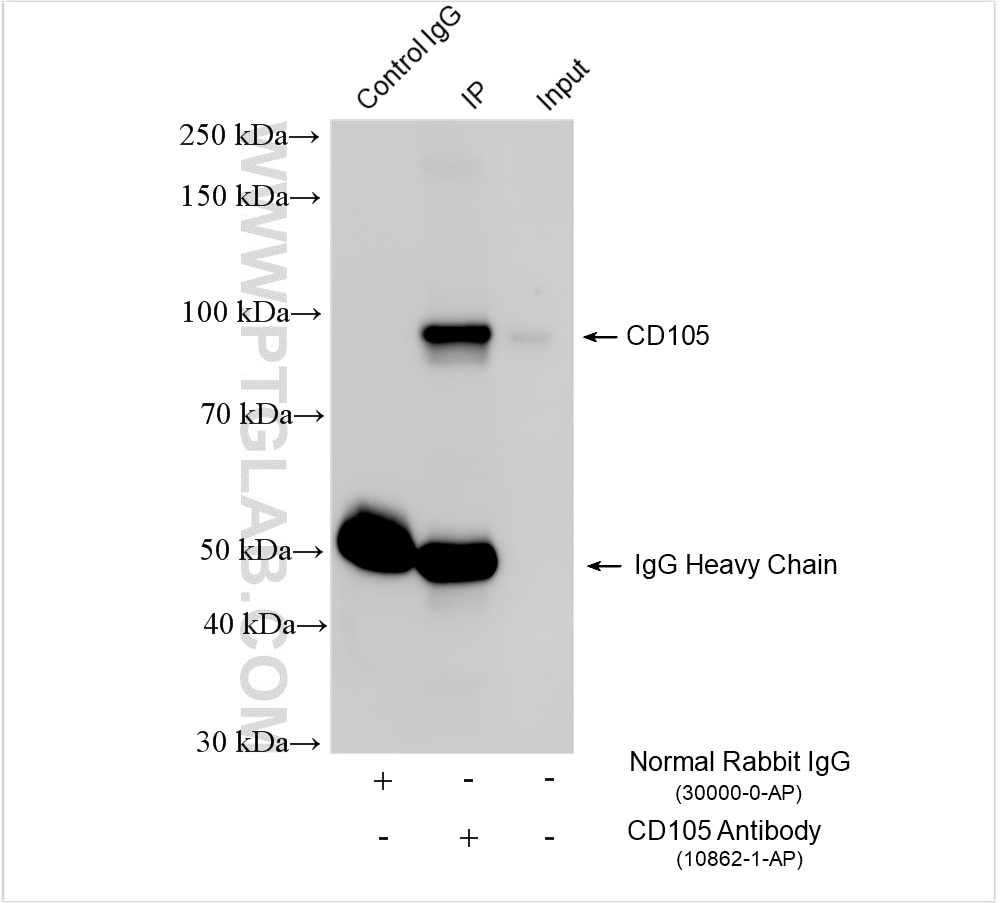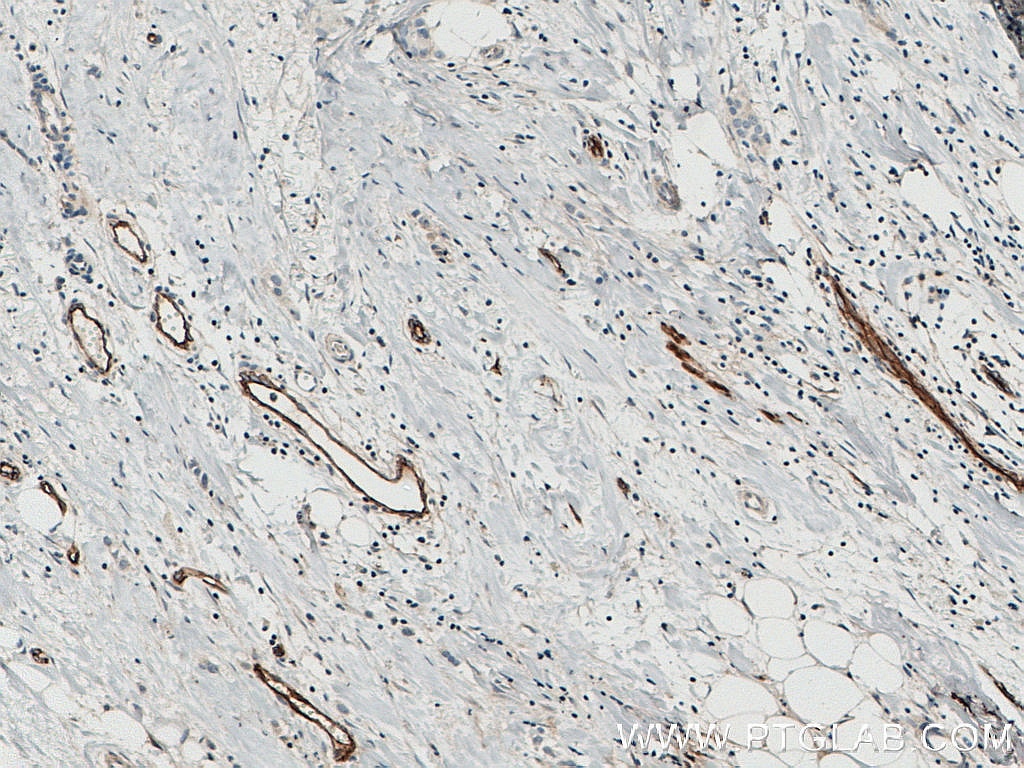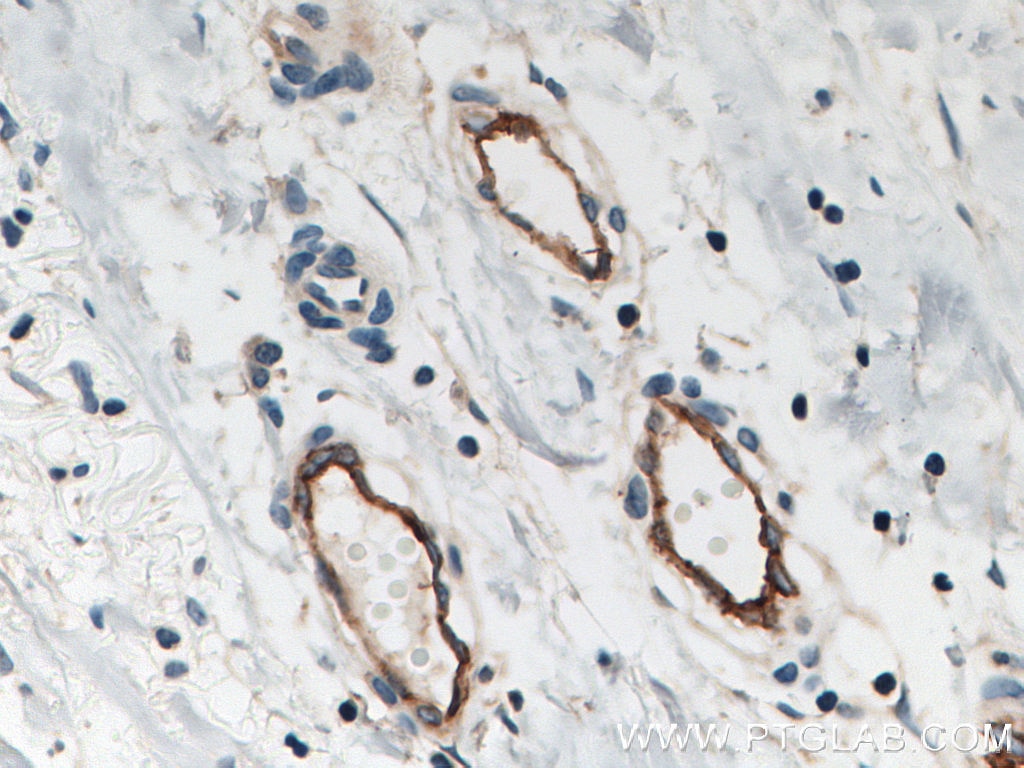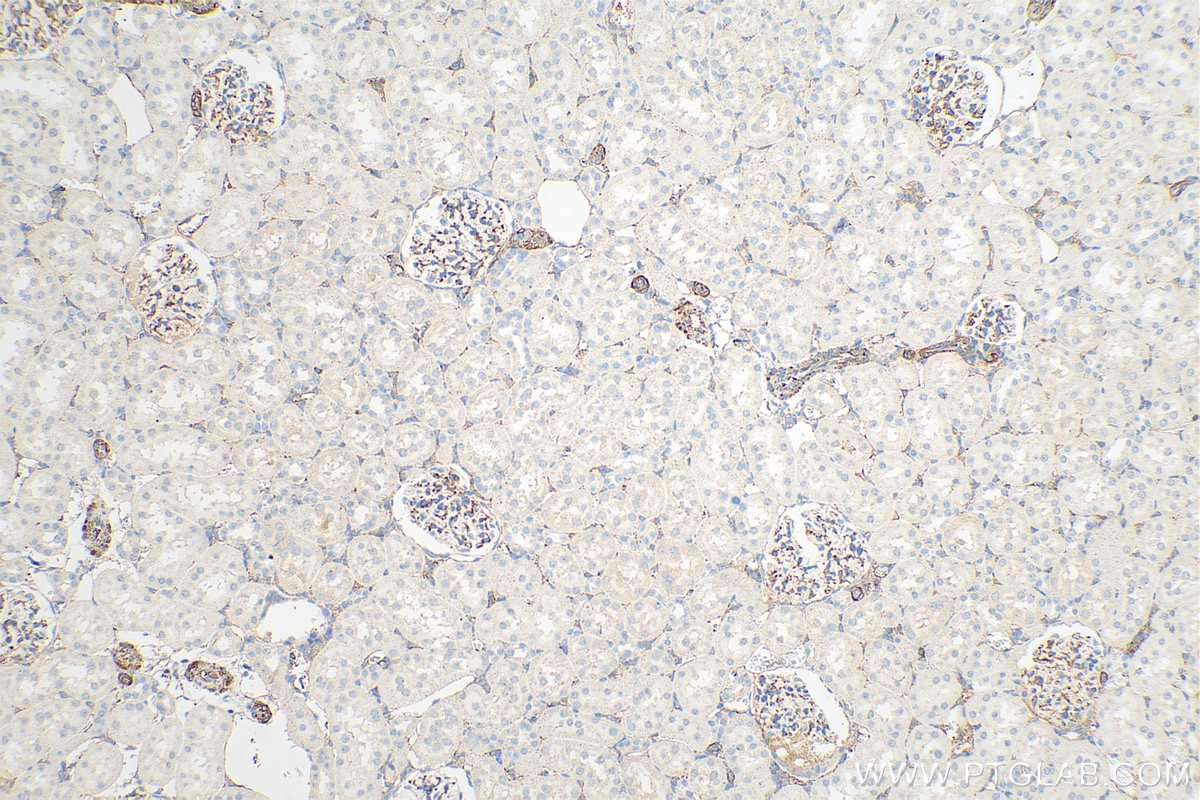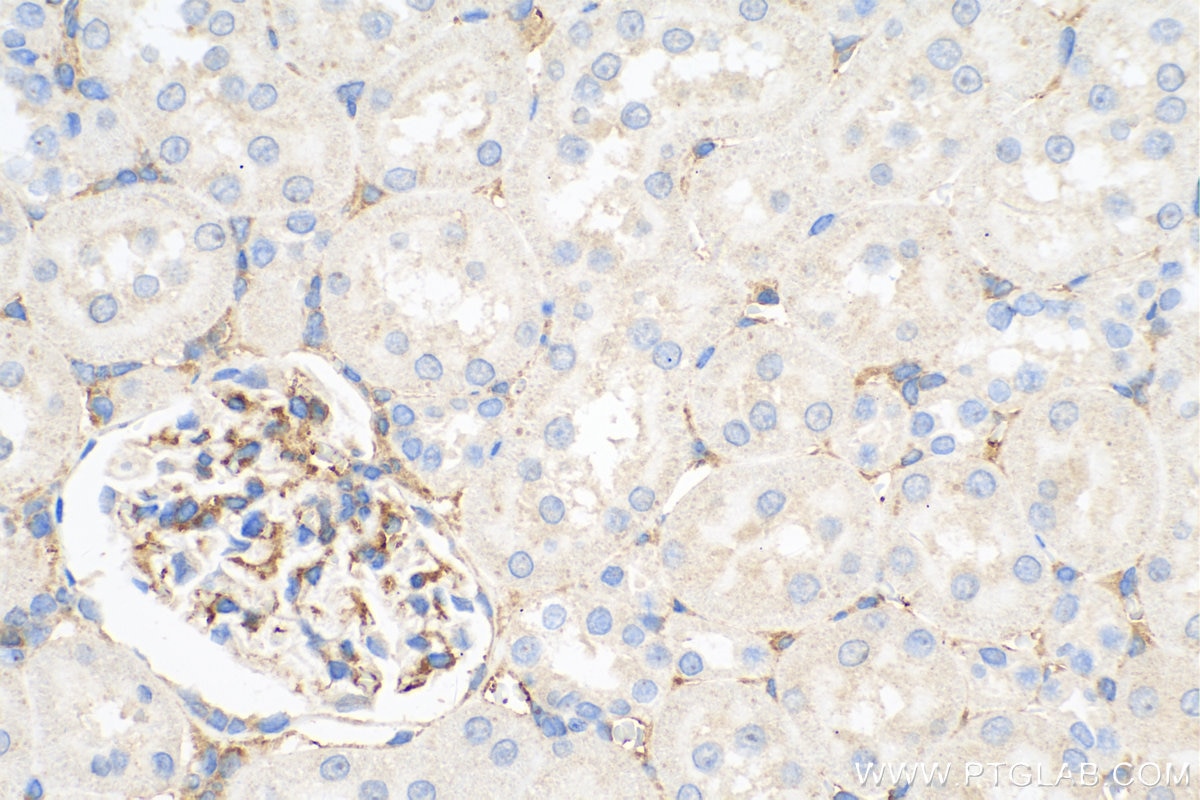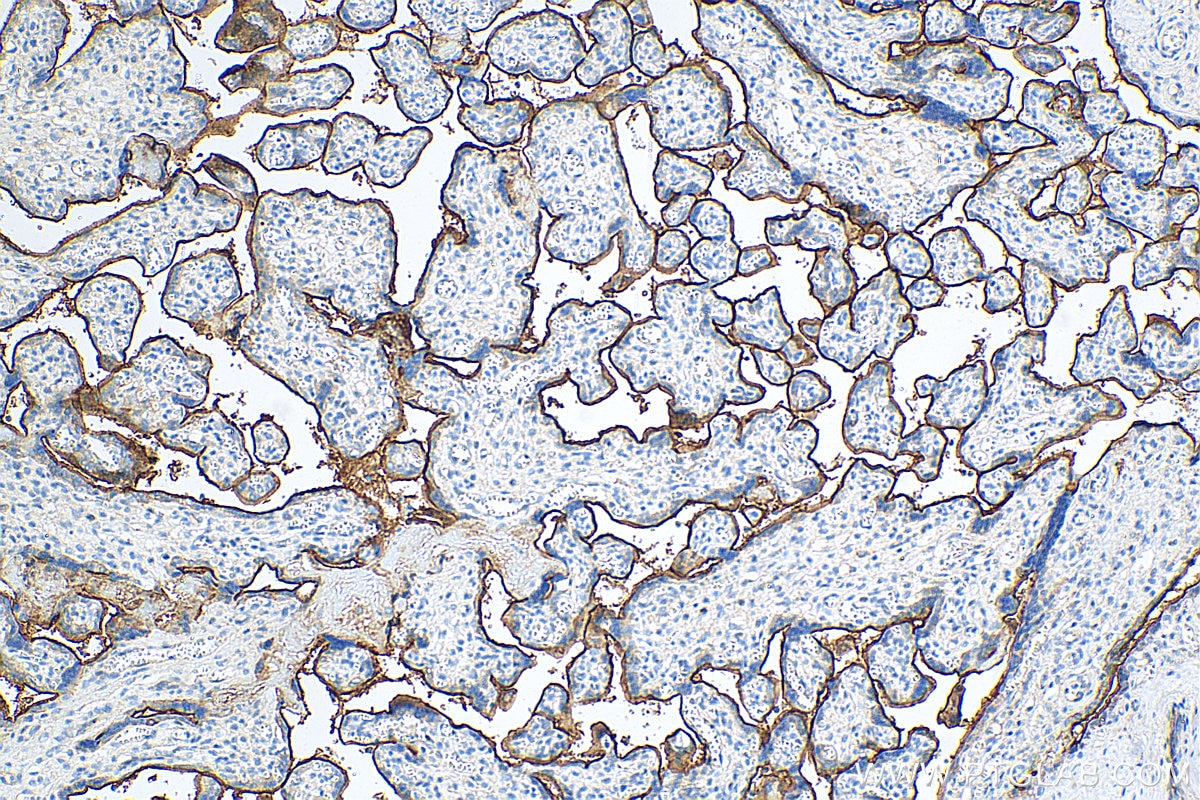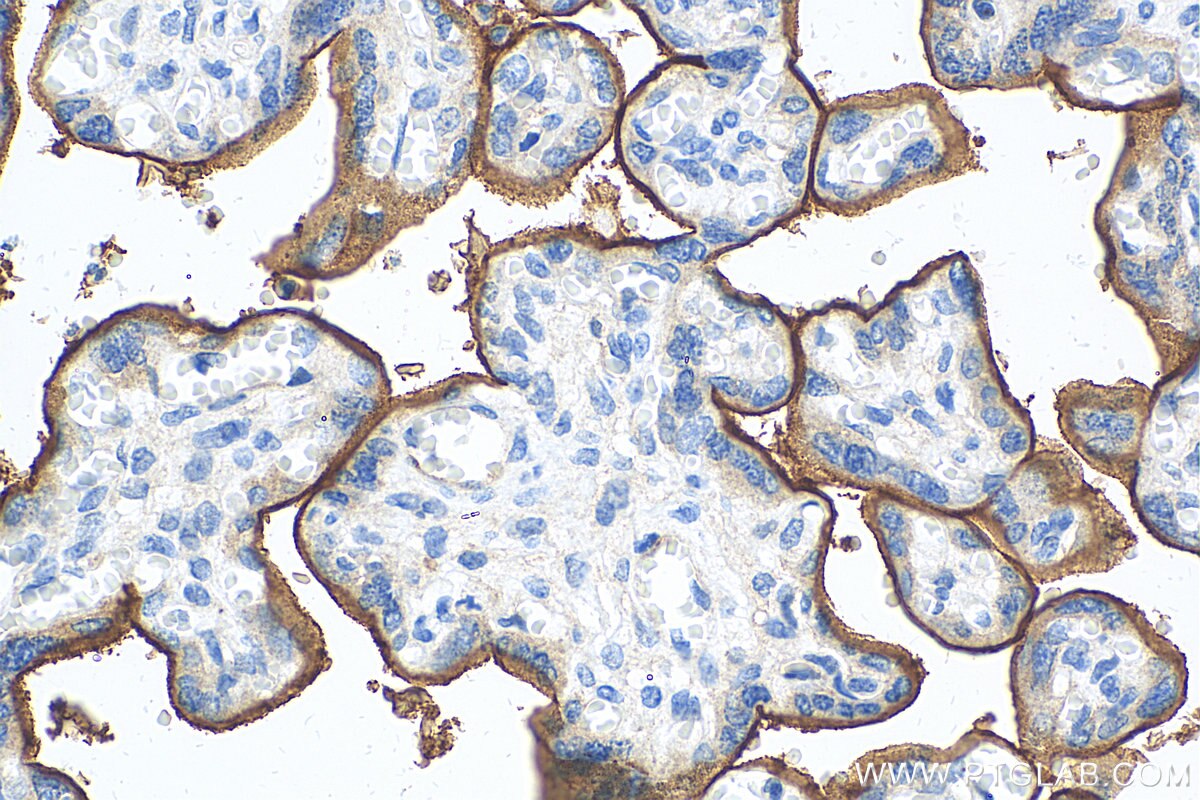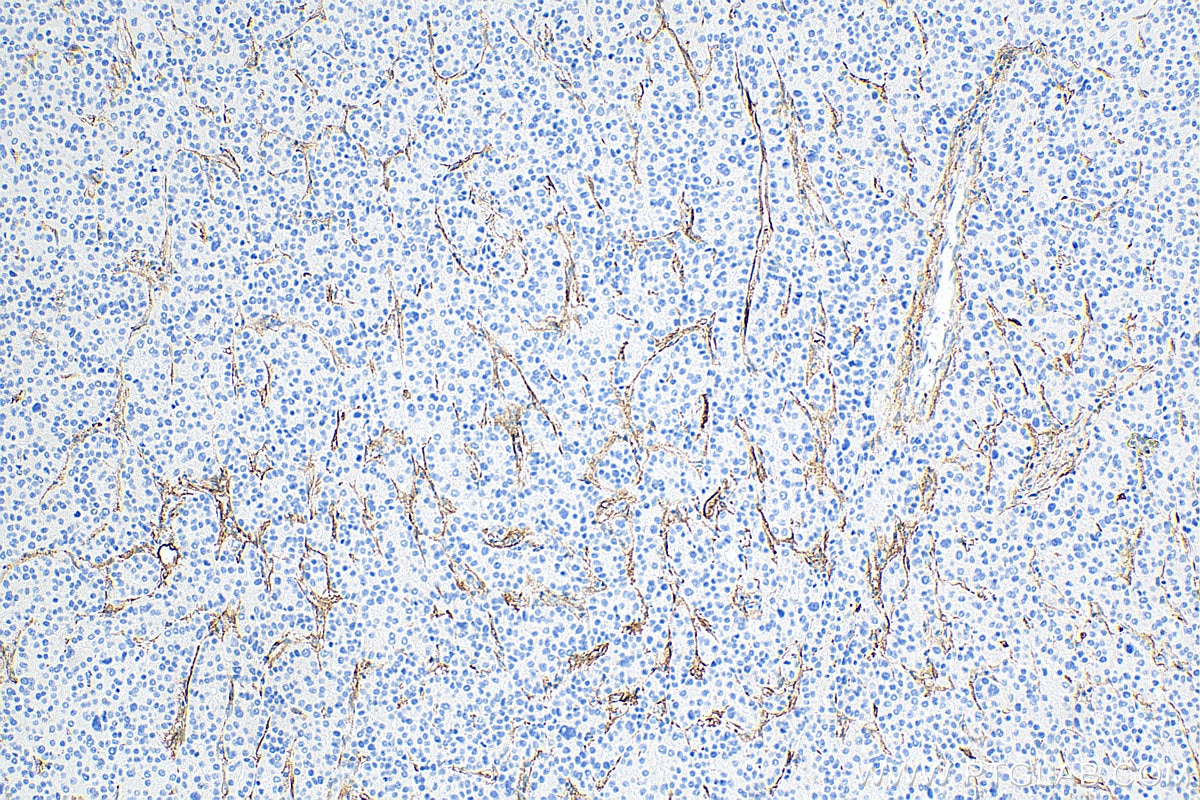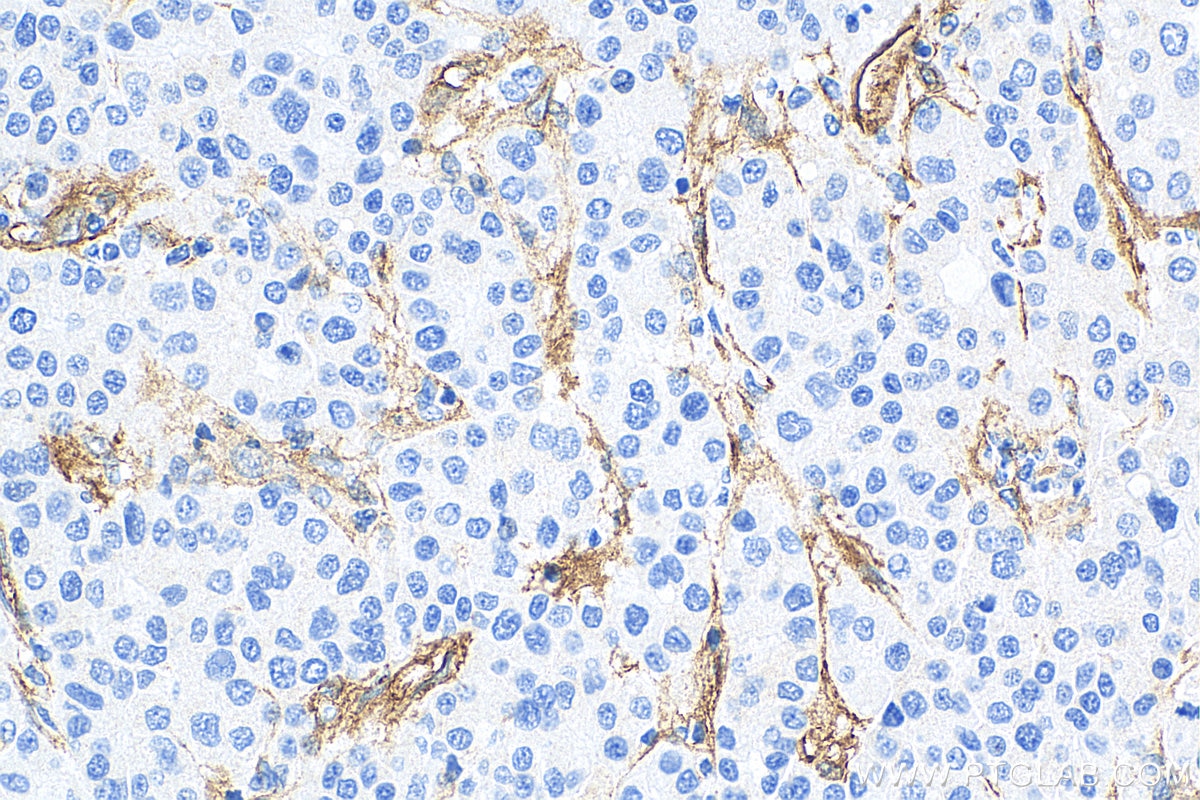- Featured Product
- KD/KO Validated
Endoglin/CD105 Polyklonaler Antikörper
Endoglin/CD105 Polyklonal Antikörper für WB, IHC, IP, ELISA
Wirt / Isotyp
Kaninchen / IgG
Getestete Reaktivität
human, Maus, Ratte und mehr (1)
Anwendung
WB, IHC, IF, IP, ELISA
Konjugation
Unkonjugiert
Kat-Nr. : 10862-1-AP
Synonyme
Geprüfte Anwendungen
| Erfolgreiche Detektion in WB | HUVEC-Zellen, HeLa-Zellen, humanes Plazenta-Gewebe, Mauslungengewebe, Rattenlungengewebe |
| Erfolgreiche IP | Mauslungengewebe |
| Erfolgreiche Detektion in IHC | humanes Mammakarzinomgewebe, humanes Leberkarzinomgewebe, humanes Plazenta-Gewebe, Rattennierengewebe Hinweis: Antigendemaskierung mit TE-Puffer pH 9,0 empfohlen. (*) Wahlweise kann die Antigendemaskierung auch mit Citratpuffer pH 6,0 erfolgen. |
Empfohlene Verdünnung
| Anwendung | Verdünnung |
|---|---|
| Western Blot (WB) | WB : 1:500-1:2000 |
| Immunpräzipitation (IP) | IP : 0.5-4.0 ug for 1.0-3.0 mg of total protein lysate |
| Immunhistochemie (IHC) | IHC : 1:1000-1:4000 |
| It is recommended that this reagent should be titrated in each testing system to obtain optimal results. | |
| Sample-dependent, check data in validation data gallery | |
Veröffentlichte Anwendungen
| KD/KO | See 2 publications below |
| WB | See 21 publications below |
| IHC | See 13 publications below |
| IF | See 19 publications below |
| IP | See 1 publications below |
Produktinformation
10862-1-AP bindet in WB, IHC, IF, IP, ELISA Endoglin/CD105 und zeigt Reaktivität mit human, Maus, Ratten
| Getestete Reaktivität | human, Maus, Ratte |
| In Publikationen genannte Reaktivität | human, Maus, Ratte, Rind |
| Wirt / Isotyp | Kaninchen / IgG |
| Klonalität | Polyklonal |
| Typ | Antikörper |
| Immunogen | Endoglin/CD105 fusion protein Ag1287 |
| Vollständiger Name | endoglin |
| Berechnetes Molekulargewicht | 71 kDa |
| Beobachtetes Molekulargewicht | 75-90 kDa, 170-180 kDa |
| GenBank-Zugangsnummer | BC014271 |
| Gene symbol | CD105 |
| Gene ID (NCBI) | 2022 |
| Konjugation | Unkonjugiert |
| Form | Liquid |
| Reinigungsmethode | Antigen-Affinitätsreinigung |
| Lagerungspuffer | PBS with 0.02% sodium azide and 50% glycerol |
| Lagerungsbedingungen | Bei -20°C lagern. Nach dem Versand ein Jahr lang stabil Aliquotieren ist bei -20oC Lagerung nicht notwendig. 20ul Größen enthalten 0,1% BSA. |
Hintergrundinformationen
Endoglin (ENG, CD105) is a homodimeric cell membrane glycoprotein of 180 kDa, composed of disulphide-linked subunits of 90-95 kDa. Endoglin is a proliferation-associated and hypoxia-inducible protein mainly expressed on vascular endothelial cells. It acts as an accessory receptor for transforming growth factor beta (TFG-β) and is involved in vascular development and remodelling. The important role of Endoglin in angiogenesis and in tumor progression makes it an ideal target for antiangiogenic therapy and a good marker for tumor prognosis. (PMID: 1326540; 14528280; 21737653; 12773481)
Protokolle
| PRODUKTSPEZIFISCHE PROTOKOLLE | |
|---|---|
| WB protocol for Endoglin/CD105 antibody 10862-1-AP | Protokoll herunterladen |
| IHC protocol for Endoglin/CD105 antibody 10862-1-AP | Protokoll herunterladenl |
| IP protocol for Endoglin/CD105 antibody 10862-1-AP | Protokoll herunterladen |
| STANDARD-PROTOKOLLE | |
|---|---|
| Klicken Sie hier, um unsere Standardprotokolle anzuzeigen |
Publikationen
| Species | Application | Title |
|---|---|---|
Nat Commun Injectable ECM-mimetic dynamic hydrogels abolish ferroptosis-induced post-discectomy herniation through delivering nucleus pulposus progenitor cell-derived exosomes | ||
Dev Cell Endothelial progenitor cells control remodeling of uterine spiral arteries for the establishment of utero-placental circulation | ||
Stem Cell Res Ther Controlled release of hydrogel-encapsulated mesenchymal stem cells-conditioned medium promotes functional liver regeneration after hepatectomy in metabolic dysfunction-associated steatotic liver disease | ||
Cancers (Basel) WISP2/CCN5 Suppresses Vasculogenic Mimicry through Inhibition of YAP/TAZ Signaling in Breast Cancer Cells. | ||
Int J Biol Sci Roquin2 suppresses breast cancer progression by inhibiting tumor angiogenesis via selectively destabilizing proangiogenic factors mRNA. | ||
Biomedicines Endoglin Modulates TGFβR2 Induced VEGF and Proinflammatory Cytokine Axis Mediated Angiogenesis in Prolonged DEHP-Exposed Breast Cancer Cells.
|
